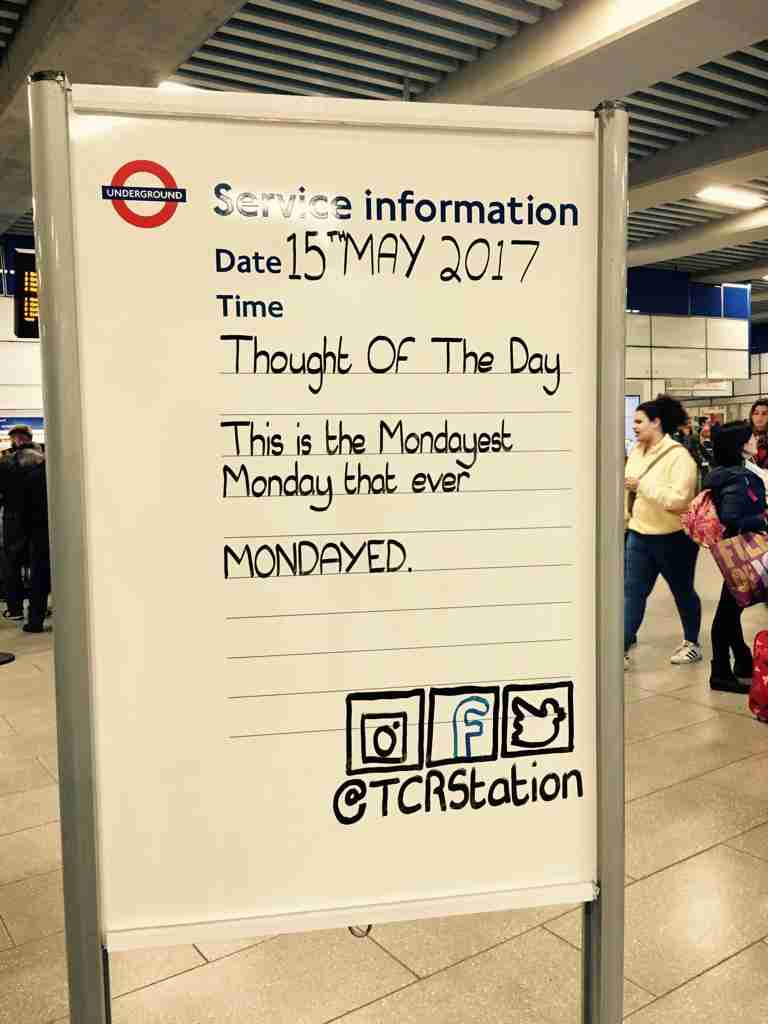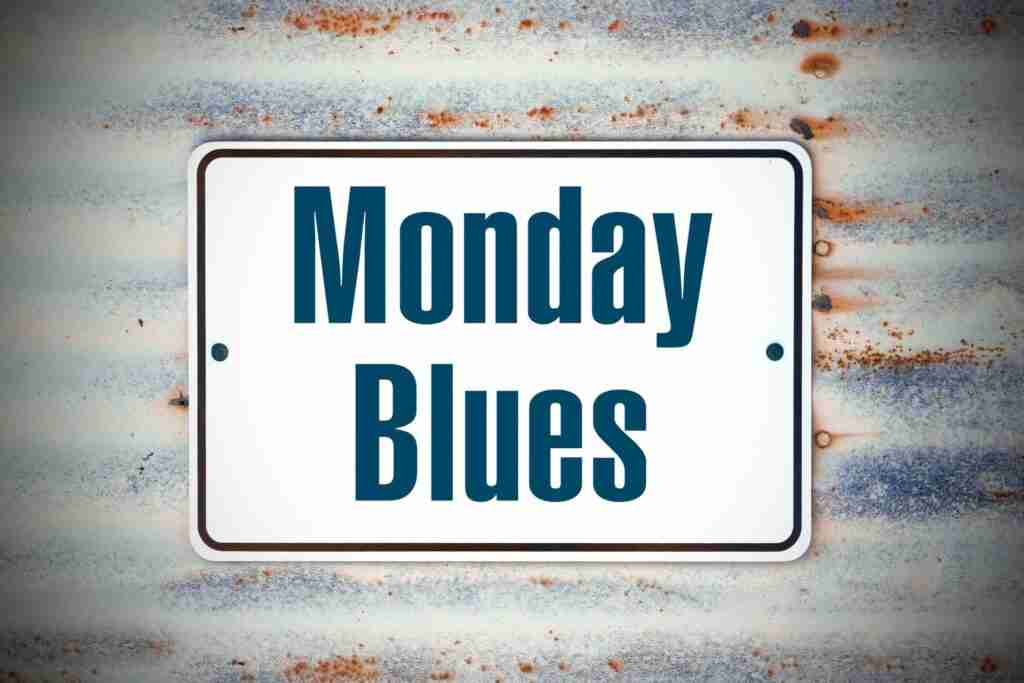What is Blue Monday 2023? An astonishing psychological explanation. Blue Monday 2023. Each year, the third Monday of January win a sad record: it is the date of the infamous Blue Monday, which in 2023 falls on January 16. But what exactly is Blue Monday? Is it really the saddest day of the year?
What is Blue Monday?
We said Blue Monday occurs on the third Monday of January, and in the Northern Hemisphere it is considered a psychologically unpleasant day.
The negative conception of this date stems from living habits in this area of the world. And in fact it is not contemplated by the inhabitants of the Southern Hemisphere. In fact, Blue Monday recurs not immediately after Christmas and the year-end holidays. But in that interval of time when we probably realize that we spent a lot of money on gifts and events. Plus the idea of the upcoming vacations is still far away.
Simultaneously, maybe we gained weight from a few too many dinners and drinks, or we put off unpleasant commitments that now loom. Perhaps, we missed deadlines and realized that we have not kept the previous year’s resolutions.
In short, that mid-January date surprises us with low motivation, cold and dark weather, post-Christmas melancholy, and the arrival of charges on our credit card statement. But why is it called Blue Monday? Basically, because this time of year is considered depressing after the excesses of the Christmas season. Plus, we feel guilty for not meeting all the goals we set for ourselves.
But I am giving you a good news, you can survive Blue Monday!
“Blue Monday, how I hate blue Monday/ Got me workin’ like a slave all day. Here comes Tuesday, oh hard Tuesday/ I’m so tired, I’ve got no time to play”.
David Louis Bartholomew
How to beat blue Monday?

As we said in 2023 Blue Monday is January 16. And the good news is that you can beat it and come out of it very well.
You can listen to the very famous 1983 New Order’s song or sing classic Blue Monday by Smiley Lewis. There are plenty of pieces you can put on your sadness playlist thinking about the holiday season that just ended. Then what? Nothing else. But why does blue Monday really exist? Let’s try to understand why people talk about Blue Monday!
The psychological explanation of Blue Monday
The development of our ideas, thoughts, and consequently also our decisions, depend on limited cognitive processes. But which lead to extremely deep-rooted beliefs and convictions.
Studies conducted in the United States by the Gallup Organization proved that Monday is wrongly considered the saddest day.
These data emerged from research in the form of interviews to investigate mood. The data showed unequivocally that Monday is as pleasant for Americans, as the three days that follow and is only slightly less joyful than Friday.
Of course, people generally felt good over the weekend, although for retirees, the difference was minimal.
Women especially tended to evaluate their daily mood more negatively than men. However, relative changes from day to day were similar for both sexes. Still, the belief of Monday as a sad day persists and many call it the worst day of the week.
Other research also confirmed that this sentiment is particularly prevalent. Despite the fact that people do not actually feel sadder on Mondays.
Blue Monday 2023: why do we firmly believe something that our immediate experience tells us is not true?

It seems that the mystery of sad Monday actually highlights a psychological phenomenon familiar to behavioral scientists, namely that beliefs and judgments about a phenomenon, may be at odds with actual experience.
A kind of disconnect between beliefs and experience, which seems to be particularly prevalent.
The idealization of vacations
Giving an example, a vacation period is generally perceived more pleasantly after it is over than how it was experienced during the while. Here then, that the beautiful beach that greeted us will be fairytale-like and we will remember nothing but the good things. An idealization that is unlikely to be disrupted by negative elements, such as a rude waiter or an uncomfortable sunbed.
And even dinner at that restaurant will be remembered as one of the tastiest, along with the heavenly laughter and well-being, compared to the routine in which we are remembering them. Perhaps on a lunch break during a long day at work.
Positive and negative life experiences
Further research about Blue Monday on the perception of positive and negative experiences shows that people who drive luxurious cars claim to have more fun than those who own more modest vehicles.
But if we look at reality, monitoring inside the car, there seems to be no difference between the two categories-luxury cars and modest cars.
But the opposite also occurs: in fact, it happens to remember pain or symptoms of illness as more intense than the actual experience was. Since humans tend not to remember periods when they have no physical pain.
Blue Monday 2023. The limits of cognitive abilities
What sense to make of these findings? Certainly, the human brain has ample, if limited capabilities in terms of memorization, retrieval and information processing.
However, we are often faced with questions that challenge these capacities. Especially when there is a disconnect between belief and experience.
More simply, when information is not available to answer a question-because it has not been deeply stored-we use all available information even if it is not relevant to answering the question.
So, in considering the pain experienced over the past week, most individuals will not be able to remember entirely the highs and lows of the seven days.
But it is likely to remember the worst intensity of pain and use it as a parameter to summarize the pain of the entire week.
The same thing happens when we are asked about the current degree of satisfaction in life. Simply, to give answers we will focus on the first things that come to mind, almost always the most recent.
Cognitive Heuristics
These mental “simplifying” processes are called cognitive heuristics. They are mechanisms that explain the tendency to emphasize peaks and recent experience when summarizing a period of time.
Thus, the general belief of Monday as a sad day is the likely result of heuristic processes, and thinking that this is the worst day of the week, may be based on our innate focus on change.
In fact, it would be the change from pleasant and relaxing Sundays to normal Mondays that would constitute the greatest change in mood over the course of a week. Obviously for a subject who usually does not work on weekends.
Imperfect memories and imperfect decisions
So, in thinking about mood on different days of the week, we react to the effect of the change rather than the absolute levels of daily mood. That would be a perception based on contrast. As we said, we get it wrong in doing so, at least in terms of depicting the actual mood experience in our memory.
In short, we happen to easily distort what happened in the past, and since decision making is based on knowledge of our experiences, imperfect memories may correspond to imperfect decisions.
In conclusion, it is not necessarily the case that Monday is always a sad day or that that beach on our vacation was really that beautiful. Similarly, it is not easy to take immediate stock of one’s life that has any real value, but the important thing is to be aware of it.
I hope I gave a clearer view of our psychological functioning. And if I can’t persuade you that Monday doesn’t have to be a blue day, at least I hope to convince you that this day brings with it, opportunities like any other.

